The day Dreamworld became Neil Balnaves’ nightmare
Former Ardent Leisure chairman Neil Balnaves breaks his silence over the Dreamworld tragedy.
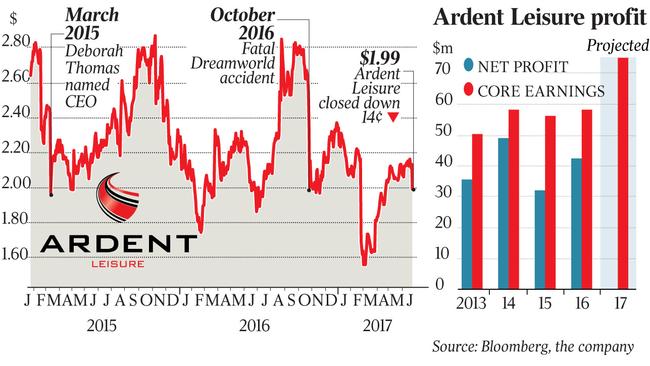
Around 3pm Tuesday afternoon on October 25, Ardent Leisure chairman Neil Balnaves was in a board meeting for the Art Gallery of South Australia when he received a phone call.
It was Ardent chief executive Deborah Thomas calling from Sydney.
The Sydney-based leisure and entertainment group, which owned Dreamworld theme park on the Gold Coast, AMF bowling centres and a string of Main Event entertainment centres in the US, had been in the process of selling its marina business.
“Deborah said she had some bad news,” he told The Weekend Australian. “I thought she must have been joking as I was expecting the news on the sale.
“But she said ‘No. I really have some bad news for you’.”
Thomas told him about the tragedy at Dreamworld that had happened only hours before. Four people had died when they were caught in the Thunder River Rapids Ride.
Balnaves was in shock.
The former chief executive of Southern Star Television, which during his watch created a string of television hits such as Blue Heelers, Water Rats and Big Brother, had been in the theme park business for more than 40 years.
Balnaves was involved in setting up Australia’s Wonderland in western Sydney in the mid-1980s but had never experienced a tragedy as bad as this one.
Balnaves called his assistant Helen in Sydney to book him on the first plane back to his home in Sydney, where he called a board meeting by phone hook-up.
“We had a phone hook-up with the whole board. There was not enough time to have a face-to-face meeting so we did it by phone.”
It was decided to set up a crisis committee to handle the situation. It was chaired by Balnaves and included Thomas and two other directors, George Venardos (who is now chairman of Ardent) and Roger Davis.
“There were two immediate problems,” Balnaves recalled in an interview in his office in Sydney marking the first time the former chairman has spoken about the tragedy at Dreamworld.
“The first thing was dealing with the tragedy and the families involved as well as management and staff. There were about 25 staff who had seen the accident and had tried to save the victims. It was terrible. The second issue was our looming annual general meeting which was only 36 hours away.”
Months before, the morning of Thursday, October 27, had been set down for Ardent’s annual general meeting.
A formal notice of the resolutions to be put before the AGM had gone out weeks before to shareholders. Proxy votes had already come in for the resolutions on the agenda.
Meanwhile, the park was closed as police inspected the site of the tragedy. On the Wednesday there were a series of phone hook-ups between the board, the crisis committee and its advisers as the full horror of the tragedy emerged.
“We were under a lot of pressure to ensure we did what we could for the victims’ families, as well as staff. We also had to meet our obligations to advise the (share) market. This was the main focus on the Wednesday,” Balnaves said.
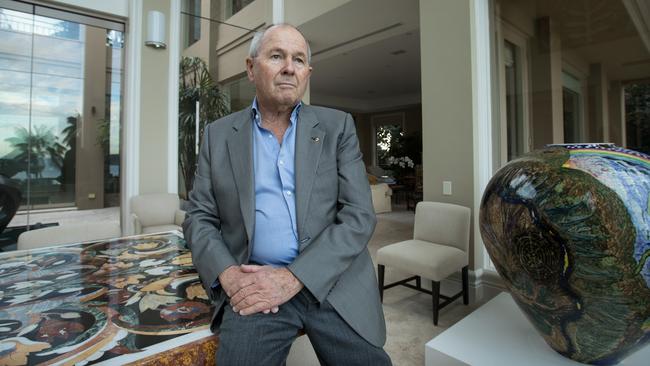
Balnaves called on the company’s lawyers for advice, including what to do about the next day’s proposed AGM. “We were told that it was not possible to defer an AGM in the last 48 hours,” he said.
Sometime before, the company had shifted from its public relations adviser, an established boutique firm headed by former journalist Tim Allerton, for the much larger firm of Newgate Communications.
While the lawyers were telling him the meeting should go ahead, Newgate argued that the annual meeting should be deferred.
“Much of their advice was in conflict with our legal advice,” said Balnaves.
But he said the board decided the meeting should go ahead.
“No one on the board was comfortable with proceeding against the legal advice which was based on ASX rules,” he said
“But the Newgate representative Miche Paterson strongly argued otherwise. She said the meeting should be postponed. But the advice was contrary to that of the lawyers who were quoting ASX rules,” says Balnaves.
“The lawyers said it was too late to postpone the meeting. We were within the last 48 hours. Many of the proxies had already been voted by this stage. If we had had more than 48 hours it would have been very different, and we had other options available, but that window had closed.”
Balnaves asked Paterson to make her case for delaying the meeting to a hook-up of the board and its legal advisers.
“They (her views) were given a clear hearing, but the decision was taken to play it on the legal advice. Paterson became very difficult from that point onwards. Instead of working towards projecting the correct picture of the issue, it was our view that she was not working in our best interests,” says Balnaves.
“From that point onwards, Newgate and Paterson seemed more interested in protecting themselves than properly managing their client’s interests.”
Paterson rejects the criticism of Newgate’s role.
“Our objective at all times was to protect the interests of Ardent in the wake of the Dreamworld tragedy,” she said yesterday.
“What needs to be remembered above all else is that four people tragically lost their lives and all of our advice to Ardent was based on that fact alone having priority over everything else.”
At the same time chief executive Deborah Thomas was trying to get in touch with the families of the people who had died.
Contacting the families was a “key consideration that Deborah was going to do on the Wednesday,” says Balnaves.
“It was not because we were holding the AGM the next day but because it was important to make contact,” Balnaves said.
But Thomas was told by the Queensland police they would handle the discussions with the family.
“Deborah ran into police procedure,” Balnaves said. “She was told there was a special unit would take care of dealing with the families and communicating between the company and the families.”
“They had set up the unit as a way of insulating the two sides.
“There are very good reasons for doing that as the police have enormous experience and are specialists in this area.”
While Dreamworld remained closed people were bringing flowers to the site to mourn the tragedy. Ardent announced that the park would reopen on the Friday with a memorial service for the victims.
As the full horror of the tragedy emerged public pressure was rising on the board and chairman Balnaves to provide some explanation of the events. Until the annual meeting Ardent had only released a statement about Dreamworld but senior executives and board members had yet to front the media.
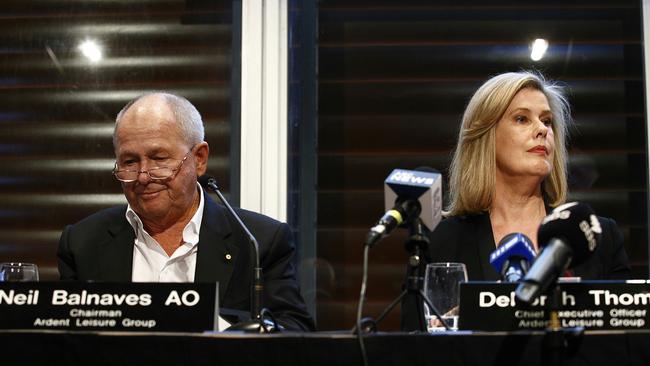
The AGM was scheduled to take place at Sydney’s historic Mint on Macquarie Street.
That morning a large media pack gathered on the grounds of the Mint as the board and shareholders filed into the room. The magnitude of the tragedy had captured the nation and drew the full attention of network television.
The date of the AGM had been set months earlier. Balnaves had been on the board of Ardent for 15 years and was set to retire just over a week after the AGM.
In early 2015, he had controversially chosen former Australian Women’s Weekly editor Deborah Thomas, who had been on the board since 2013, to take over as the company’s chief executive.
It was a left-field decision that prompted a lot of criticism of Balnaves about Thomas’s ability to run a public company like Ardent.
The announcement of the resignation of chief executive Greg Shaw, who had been in the job for almost 13 years, and his replacement with Thomas, was a shock to investors.
Thomas’s appointment was endorsed by the whole board but Balnaves was seen as her strongest backer. Ardent shares dived by 28 per cent on the announcement.
Shaw’s departure had followed a string of senior management departures and deteriorating performance in the company’s health club division.
Balnaves said Shaw left “after a very turbulent period of management changes at the top of each division. The company had lost seven general managers in four divisions over three years.”
In appointing Thomas, the board was looking for a very different chief executive officer.
“Both I and the board felt it was time to focus Ardent away from cost-cutting and move more towards marketing and consumer focus, particularly as the company’s major consumers were female,” Balnaves said.
“Thomas had excellent credentials in those key areas.”
Balnaves says Thomas had been unfairly criticised for stepping into the role after having been a women’s magazine editor.
He said Thomas was a highly experienced media executive who had worked directly with some of the toughest bosses in the country — Kerry Packer and John Alexander.
“She wasn’t just a magazine editor, she had been the No 2 in what came to be known as Bauer magazines for the last four or five years,” he said.
“She had survived under two extremely strong chief executives — Packer and John Alexander. She was not inexperienced.
“Just because she didn’t have a university degree didn’t mean she wasn’t capable of doing the job. She had had years of experience as both a magazine editor and publishing executive.”
As the annual meeting approached, Balnaves was happy with how the company was performing under Thomas’s leadership.
“Thomas was in the process of establishing a good turnaround in the company’s performance,” says Balnaves.
“It was starting to reflect in the company’s results.”
The day before the tragedy, the share price had recovered to $2.55.
At the age of 72 Balnaves had been keen to retire as chairman to spend more time on his philanthropic work and his new role as chancellor of Charles Darwin University, which he had taken up in April 2016.
The AGM was to be Balnaves’s last public event as chairman — maybe a nice farewell given his years of service to the company. But the meeting could not have been more different.
When Balnaves arrived for the meeting on the Thursday morning he could see the waiting media and was worried about how the day would go.
Dozens of journalists sat at the back of the room during the AGM waiting for a press conference to be held afterwards.
Once the meeting was over, the shareholders filed out while Balnaves, Thomas and the other members of the crisis committee remained to take questions from the media.
There was controversy over the resolution put to the meeting to give Thomas a bonus. It had been on the resolutions for the meeting but, in the light of the tragedy, it was not a good look. Later that day Thomas pledged to donate her $167,500 cash bonus to the families of the victims involved in the Dreamworld disaster.
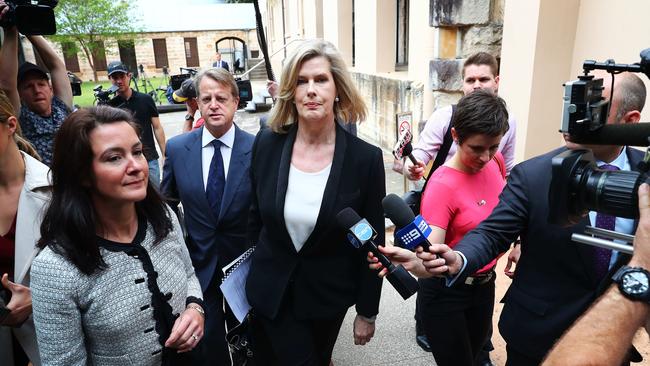
Things then got worse.
Thomas was asked if she had been in contact with the families. She said she had.
But a reporter from Channel 10 spoke up. She said she was on the phone to the mother of one of the victims who had not received a call from Thomas. Thomas, who had already been close to tears during the press conference on several occasions, was left looking like she was not telling the truth.
“When she was asked about getting in contact with the families she rightly said ‘yes’,” said Balnaves. Maybe she could have made it clearer that it was being done through the police unit but we were by no means ignoring the families.”
Balnaves felt the press conference had turned into a “circus”.
The meeting and the press conference were seen by the wider public as an unmitigated public relations disaster.
At Dreamworld, as police and Queensland authorities continued to examine the site, it became clear that they wanted to have the park closed for a lot longer than a few days.
Later on the Thursday it was announced the planned reopening would be cancelled and the park closed indefinitely.
Again Ardent’s management looked like it was on the back foot, maybe far too eager to reopen the park.
Looking back, Balnaves admits it was a mistake to try to reopen the park so soon. But he said the decision was made initially out of concern for the workers.
“There were about 1000 people who depended on Dreamworld for their job,” he said.
“In my experience in dealing with tragedy it is better for people to get back to work and keep them occupied. In hindsight it was the wrong decision.”
On the Saturday morning there was another surprise for Balnaves — a front-page story in The Weekend Australian which made it clear that he had been advised by Newgate to defer holding the annual meeting.
The story also revealed some of the discussions at a board meeting after the annual meeting. Balnaves had been having issues for some time with what he felt were leaks from boardroom meetings. “It was a blow-by-blow account of what happened at certain stages in the boardroom (meeting after the press conference),” says Balnaves.
Balnaves says he has a “clear” view of where the story came from. “The quotes in the newspaper were identical to the language used in the board room,” he said.
Balnaves was angry at the article but at the time had declined a request by The Weekend Australian to comment.
“The company and I took the view that, whether it was right or wrong, it was not an appropriate time to publicly defend ourselves,” Balnaves said.
“It was an awful tragedy which was taking its toll on the families and all the staff, particularly those at Dreamworld. It was important to show compassion for the families and not keep it on the front page.”
Dreamworld stayed closed until early December and has struggled to regain its former business. Ardent is expecting Dreamworld will lose as much $4m this financial year.
New chief executive Simon Kelly said yesterday that it could take as long as two years from the reopening for the park to recover fully — despite new attractions and special passes to attract visitors back to the park.
The company is hoping the midyear school holidays that start next week will see some upturn.
Seven months later, when much has changed including the departure of Deborah Thomas as chief executive, Balnaves feels it is time to put his side of the story.
He describes the events around the accident as “an extraordinary set of circumstances”.
“I still can’t work out how it could have happened.”
He said Ardent had a “very strong culture of safety. It had a safety committee which included directors Roger Davis and George Venardos and various executives involved with safety issues at the operating levels. The committee met regularly and reported very frequently to the board.”
Balnaves is still affected by the accident. “The memory of the tragedy still haunts me to this day,” adds says.
Balnaves won’t comment on the current issues around Ardent which has seen the departure of Thomas. Nor does he have much to do with Thomas, who is still very personally affected by the events.
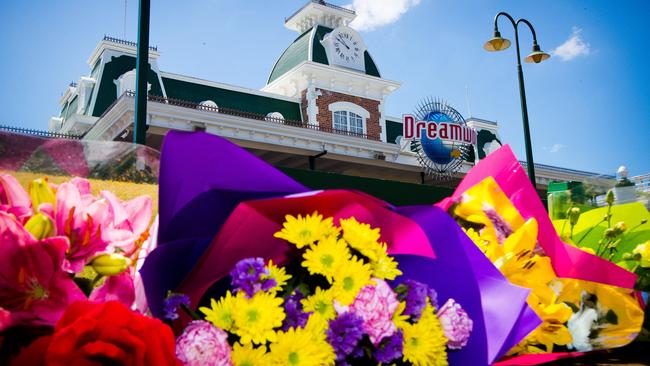
While he felt he had no option but to continue with the AGM, Balnaves said with the benefit of hindsight he would have delayed the vote about Thomas’s bonus which was to be considered at the meeting. But he said he had no idea at the time that this option was open to him.
Balnaves wants to make clear that the board took all the decisions that it did after careful advice. “I would like to reinforce that the board took advice on what were the appropriate options to take,” he said. “We didn’t just run around like headless chooks as some critics would like to suggest.
“The board agreed unanimously on every step.”
And what could be a lengthy coroner’s inquiry into the tragedy has yet to begin.


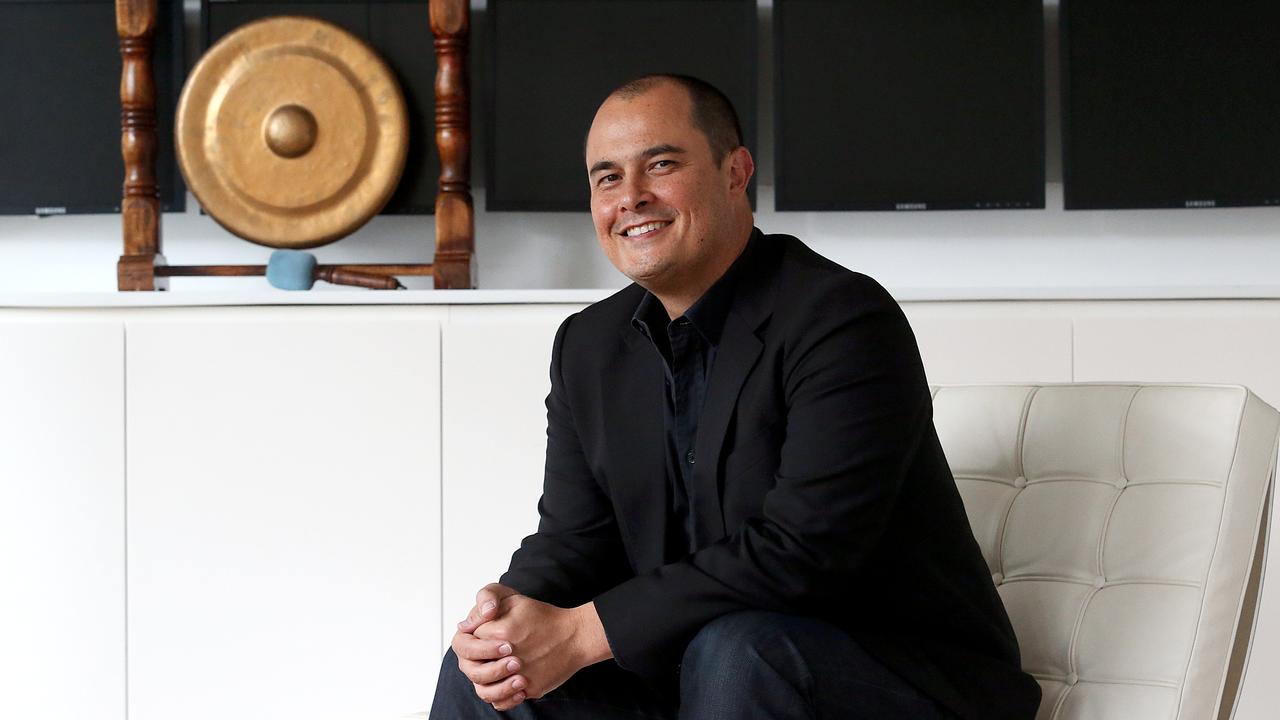
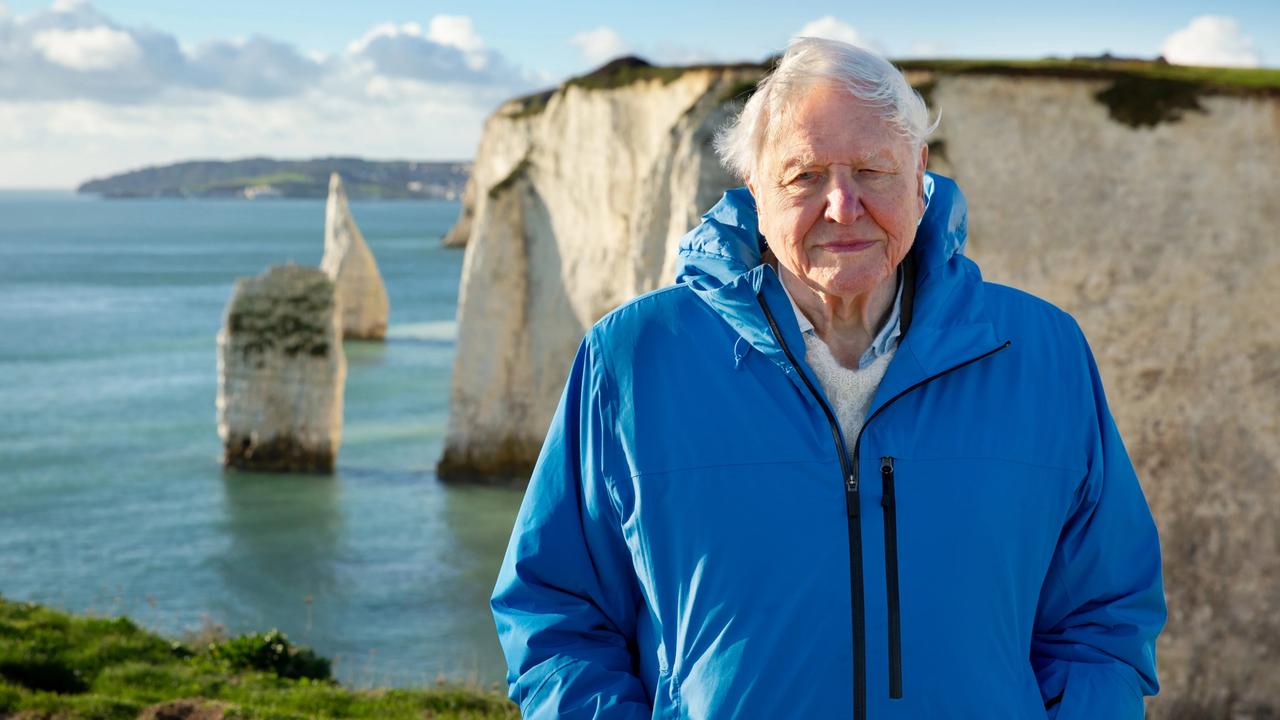
To join the conversation, please log in. Don't have an account? Register
Join the conversation, you are commenting as Logout